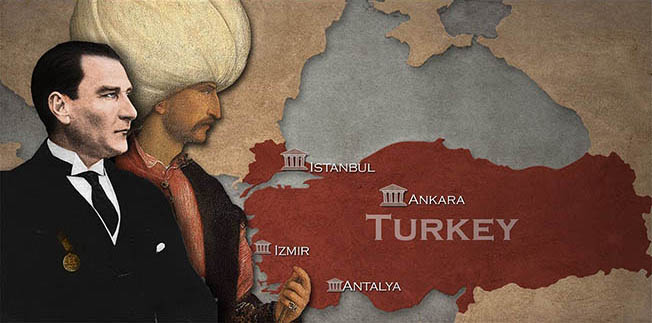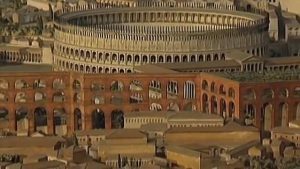Turkey History
Turkish historical timeline; this history timeline has been developed to provide a snapshot of the famous people, important dates and events during this historical time period of Turkey.
TURKISH HISTORY TIMELINE
Important dates in a fast, comprehensive, chronological, or date order providing an actual sequence of important past events which were of considerable significance to the famous people involved in this time period.
A Neolithic city is established at Catalhoyuk in central Anatolia, the world’s first known settlement date back to 6500 BC. The Republic of Turkey was founded in 1923.
23000 BC: A cave at Karain, north of Antalya, is inhabited by humans, the oldest known evidence of habitation in Anatolia.
6500 BC: A Neolithic city is established at Catalhoyuk in Central Anatolia, the world’s first known settlement.
5000 BC: Stone and Copper Age. People have already been living in Anatolia for 20,000 years.
2600 BC – 1900 BC: The Proto-Hittite Empire flourishes in Central Anatolia and the Southeast.
1900 BC – 1300 BC: The Hittite Empire flourishes, battles Egypt. Patriarch Abraham, who has been dwelling in Harran, near Sanliurfa.
1300 BC – 1260 BC: The Trojan Wars described by Homer in the Iliad.
900 BC – 800 BC: Rise of Phrygian, Lydian and Carian cultures.
725 BC: King Midas rules the Phrygians from his capital of Gordion.
561 BC – 546 BC: Croesus rules the Lydians until his defeat by the Persian Empire.
353 BC: The death of Mausolus, ruler of the Hectamonid clan, who built his famous tomb at Halicarnassus.
334 BC: Alexander the Great crosses the Dardanelles from Macedonia and sweeps across Asia Minor.
279 BC: Celts invade and establish the kingdom of Galatia near Ankara.
250 BC: Rise of the Kingdom of Pergamon as an Anatolian power.
129 BC: Anatolia becomes the Roman Province of Asia, with its capital at Ephesus.
64 BC – 38 BC: Antiochus I rules the Commagene Kingdom and builds a temple as a monument to himself at the summit of Mount Nemrut.
56 AD: St.Paul stays in the city of Ephesus and writes his famous Epistles.
330 AD: Constantine chooses the minor town of Byzantium as the capital of the Holy Roman Empire, rebuilding it in the image of Rome and renaming it Constantinople.
537 AD: Inauguration of Hagia Sophia church in Istanbul by the Emperor Justinian.
570 AD – 622 AD: Birth of Muhammed. Revelation of the Kur’an. Muhammed’s hejira from Mecca to Medina.
1037 – 1109: Turkish Empire of the Great Seljuks in Iran.
1071 – 1243: Seljuk Sultanate of Rum, an offshoot of the Great Seljuk Empire, established in Anatolia with its capital in Konya. Mystic poet and philosopher Jelaleddin Rumi, called Mevlana, takes up residence in Konya, writes his great works, and inspires the founding of the Whirling Dervish Sufi order.
1299: The Ottoman state is formed by Osman Bey from whom it takes its Turkish name Osmanli.
1453: Fatih Sultan Mehmet conquers Istanbul, bringing the Byzantine age to an end, and renames it Istanbul.
1520 – 1566: Reign of Sultan Suleyman the Magnificent, the great age of the Ottoman Empire. The sultan rules most of North Africa, most of Eastern Europe and all of the Middle East.
1571: Ottomans conquer Cyprus.
1914: Ottoman Empire enters the First World War on the side of the Germans.
1923: Mustafa Kemal Ataturk founds the Republic o



